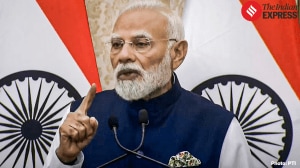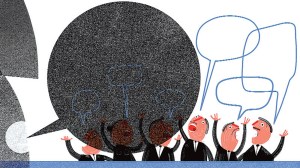RBI talks tough ahead of policy review
High crude oil and food prices continue to worry the Reserve Bank of India which is set to undertake the quarterly review of the Annual Monetary Policy on Tuesday.

High crude oil and food prices continue to worry the Reserve Bank of India (RBI) which is set to undertake the quarterly review of the Annual Monetary Policy on Tuesday. What’s even more worrying the central bank is that the pass-through in the case of administered petroleum products is still incomplete while crude oil prices are expected to remain high in 2008.
“As the potential inflationary pressures from international food and energy prices appear to have amplified and, by current indications, are likely to remain so for some time,” the RBI said in its first quarter review of the macro-economic and monetary developments, hinting that there could be tough measures to rein in inflation.
It said the recent increase in petroleum prices by the government was not sufficient in view of the rising global crude oil prices. In rupee terms, the increase was about 122 per cent over the same period, while the minerals oil (monthly average) index in the WPI increased by about 27 per cent, it said.
“With WPI-based inflation hardening since the annual policy statement, an adjustment of overall aggregate demand on an economy-wide basis was warranted. The monetary policy had to urgently address the aggregate demand pressures, which appeared to be strongly in evidence,” RBI said. Inflation has more than doubled to 11.89 per cent in the last one year.
The RBI had hiked CRR by 1.25 per cent to 8.75 per cent and repo by 0.75 per cent to 8.5 per cent since April 2008 to contain inflation.
The RBI said the policy focused on conditioning perceptions for inflation in the range of 4-4.5 per cent so that an inflation rate of around 3 per cent became a medium-term objective consistent with India’s broader integration into the global economy.
According to the RBI, the finances of the central government could be pressured by higher government salaries, a cut in petroleum product duties, higher oil and fertiliser subsidies and compensating banks for waiving debts of small farmers. A survey of professional forecasters by the RBI in June predicted the economy would expand 7.9 per cent in 2008-09, lower than the previous prediction of 8.1 per cent.



- 01
- 02
- 03
- 04
- 05




























